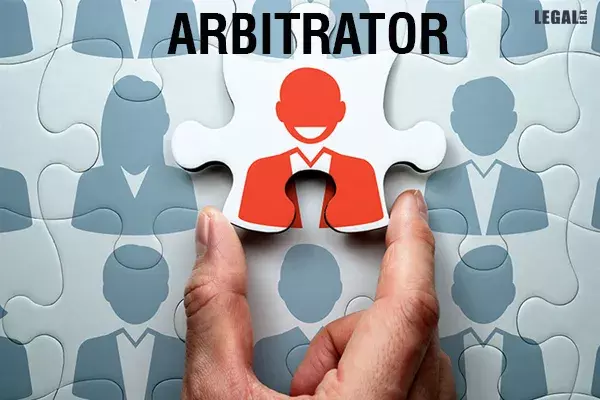Supreme Court: Application For Arbitrator's Appointment Cannot Be Rejected Due To Multiplicity If New Cause Of Action Arises
Supreme Court clarifies limits on filing multiple arbitration applications, ruling that insolvency proceedings do not extend arbitration deadlines.;

Supreme Court: Application for Arbitrator's Appointment Cannot Be Rejected Due to Multiplicity if New Cause of Action Arises
In a significant ruling, the Supreme Court allowed an appeal filed by HPCL Biofuels Ltd. (the appellant), setting aside the Bombay High Court’s decision to appoint a sole arbitrator for resolving disputes between the appellant and Shahaji Bhanudas Bhad (the respondent).
The bench, comprising CJI Dr. DY Chandrachud and Justice JB Pardiwala, held that the respondent’s fresh application for the appointment of an arbitrator under Section 11(6) of the Arbitration and Conciliation Act, 1996 (the Act), was not maintainable and was time-barred. The Court also ruled that the respondent could not benefit from the provisions of Section 14(2) of the Limitation Act, nor could it claim condonation of delay under Section 5 of the Limitation Act.
The appellant, a government entity engaged in the business of bio-fuels, floated tenders in 2012 for the enhancement of its process stations and Boiling House in Lauriya and Sugauli (in West and East Champaran, respectively). The respondent, a company involved in manufacturing, supplying, and erecting machinery for sugar factories, was awarded the contracts. In 2012-13, the appellant issued purchase orders to the respondent for turnkey projects, but disputes soon arose over the respondent's work performance, including concerns over the quality of materials and delays in meeting deadlines.
In 2017, the respondent sent a demand notice to the appellant under Section 8 of the Insolvency and Bankruptcy Code, 2016 (IBC), seeking payment of the outstanding dues. However, the appellant refused to settle the claims, citing unsatisfactory performance.
Subsequently, in 2020, the respondent filed an application before the National Company Law Tribunal (NCLT), seeking to initiate corporate insolvency resolution proceedings (CIRP) against the appellant. The NCLT admitted the application, but the National Company Law Appellate Tribunal (NCLAT) later quashed it in January 2022, ruling that a genuine dispute existed between the parties, making the insolvency proceedings inadmissible.
Following the dismissal of the insolvency proceedings, the respondent filed a fresh application in 2022 before the Bombay High Court under Section 11(6) of the Act, seeking the appointment of an arbitrator to resolve the disputes. Issues
1. Maintainability of the Fresh Application
The key issue before the Supreme Court was whether the respondent’s fresh application for the appointment of an arbitrator was maintainable, especially considering that the respondent had earlier withdrawn a similar application. The Court noted that while Section 11 of theArbitration Act does not prevent the filing of multiple applications seeking arbitration for the same disputes, the respondent’s earlier application had been withdrawn unconditionally, and no liberty had been granted to file a fresh application. Drawing parallels with civil procedure under Order 23 Rule 1 of the CPC, which allows withdrawal of a suit with the possibility of re-filing, the Court held that the principles underlying this provision should apply to arbitration petitions as well.
The Court emphasized that while withdrawal of a petition may be permitted to ensure justice is not hindered by technicalities, a party cannot repeatedly file multiple petitions for the same dispute without the express permission of the court. Since no liberty was granted in this case, the Court concluded that the respondent’s fresh petition was not maintainable.
2. Time-barred Application and Limitation
The second major issue was whether the fresh application filed by the respondent in December 2022 was time-barred. The Court noted that the respondent had pursued insolvency proceedings before the NCLT and abandoned the arbitration route in favor of the IBC process. The respondent’s decision to pursue IBC proceedings was deemed a conscious choice, and the Court held that time spent during these proceedings could not be excluded when computing the limitation period for filing an arbitration application under Section 11(6) of the Act.
The Court specifically ruled that the period spent on the IBC proceedings could not be excluded under Section 14(2) of the Limitation Act. The reasoning was that insolvency proceedings under the IBC are not analogous to ordinary recovery proceedings, such as suits or arbitration claims, as they focus on the revival of a corporate debtor, not just debt recovery. Furthermore, while both IBC and arbitration may involve the recovery of dues, the purpose and nature of the proceedings are distinct, and as such, the respondent could not seek to extend the limitation period based on its IBC filing.
The Supreme Court’s decision brings clarity to the application of arbitration procedures under the Act, especially when there is a history of prior filings and withdrawals. The Court also reinforced that time spent in alternate legal proceedings like insolvency cannot be excluded for the purpose of extending the limitation period for arbitration applications. Consequently, the Court set aside the Bombay High Court’s order and ruled in favor of the appellant, declaring the respondent’s fresh arbitration petition as time-barred.

